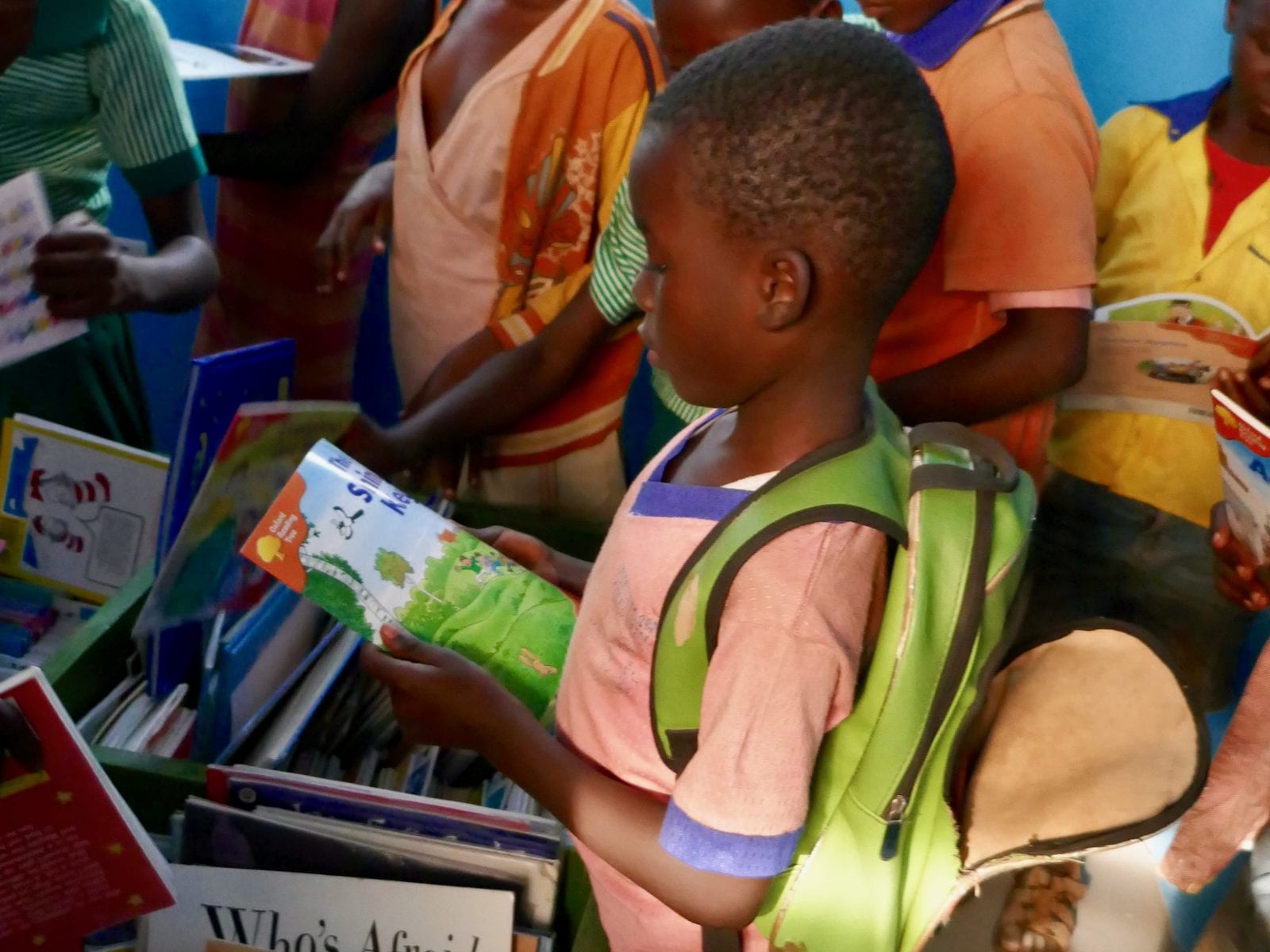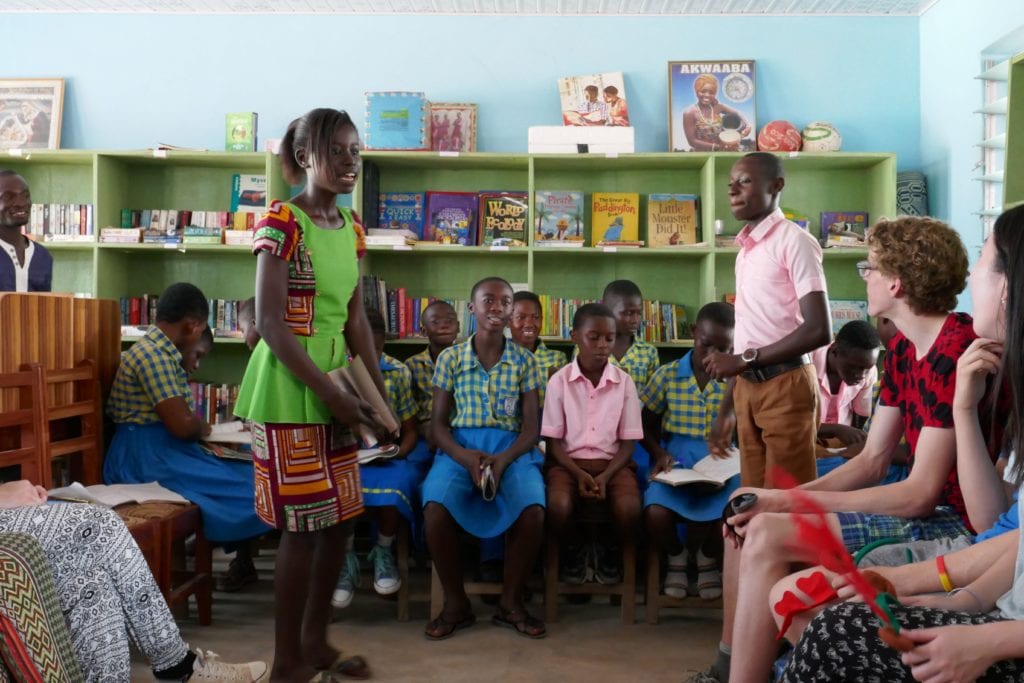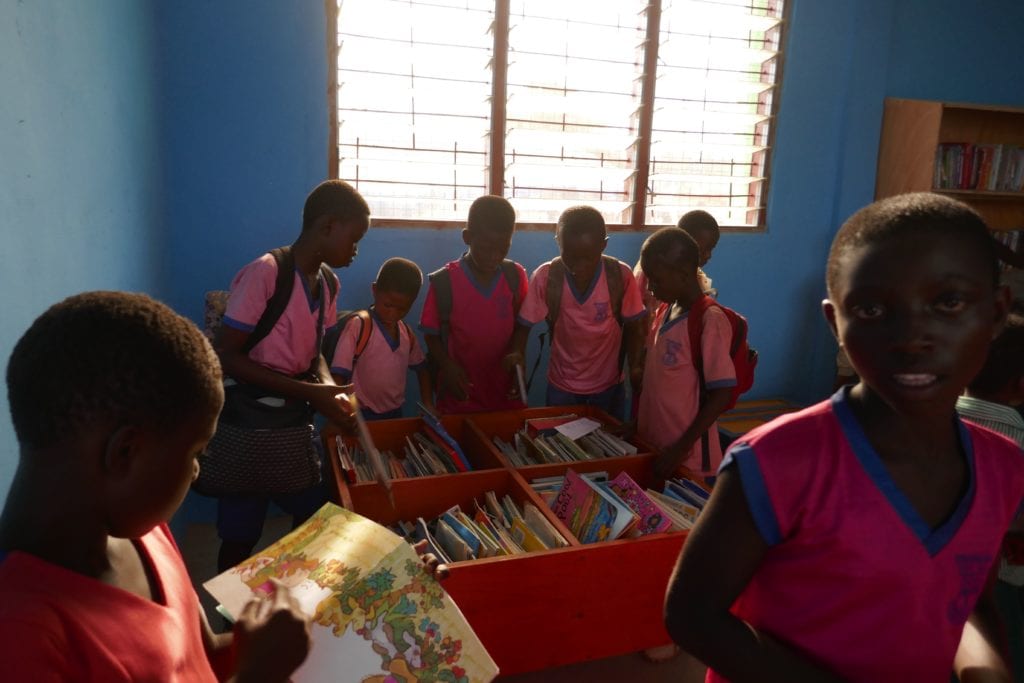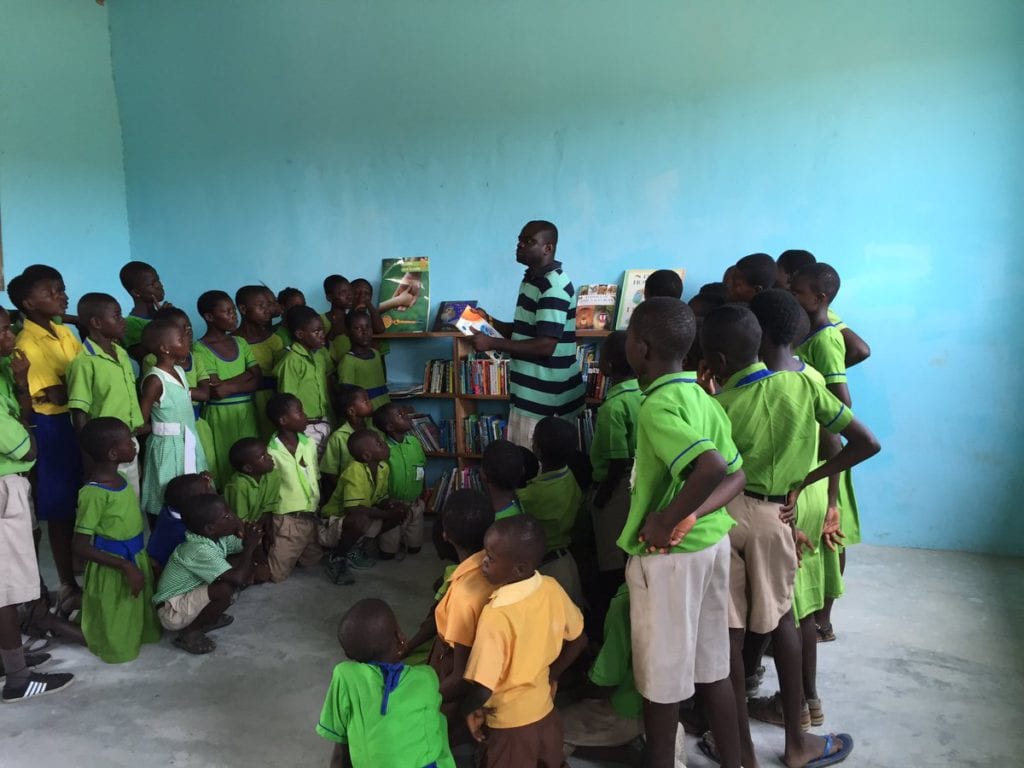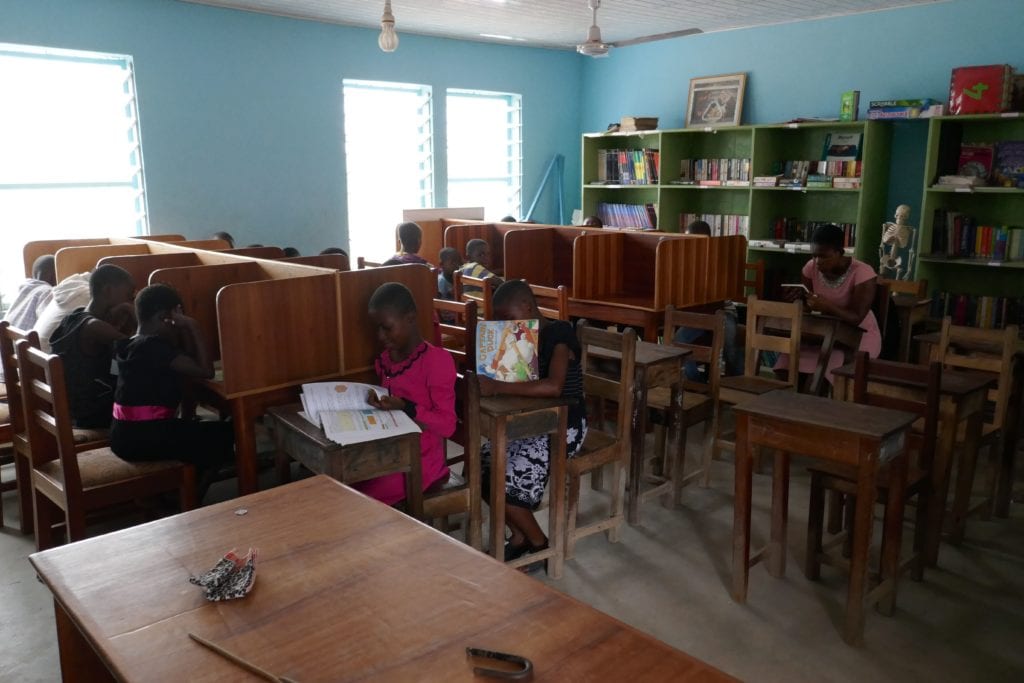In spite of my tendency to be quite critical of everything with respect to our project, being in Ghana has certainly cemented a strong belief that the Reading Spots model, given our particular resources and experience, is the most effective way that we (as a small NGO) can support the education of Ghanaians. I’ve examined it from every possible angle, and I do believe that we’ve created an idea that is an effective low-cost route to advancing literacy and literary engagement in Ghana.
Many people often ask me: ‘so, are you going to move onto schools next?”, as if the creation of one of our projects is just a lower-scale version or less significant creation of the educational opportunities that only a school could provide. However, as an NGO, we are very specifically focusing upon libraries, for reasons I hope to make clear in this short late-night blog post.
In the UK context, it is difficult to appreciate the particular role a library might play in the Ghanaian context, simply because our perspective is altered by the fact that our schools are (generally) equipped with books, we have internet access as a source of knowledge, and we have places to study in the evenings and after school with electricity and therefore light. The educational landscape is very different in Ghana, and therefore you have to think a little further to consider the particular role a library could play in the Ghanaian environment.
If you visit schools in Ghana, you will find many school buildings in need of repair – schools ranging from government schools to thousands of low-cost private schools, many of which run at no profit (or even a loss) to offer their community a high quality of education. I started to think about the educational gains that are made from rebuilding or building school buildings, and it became clear to me from observing different types of schools that the quality of education being delivered by teachers did seem not depend upon the quality of school buildings, but rather a combination of the management of the school, the knowledge, experience, training and enthusiasm of the teachers (which often related to pay), and the educational resources that the schools were able to provide. Changing the pay of teachers, training teachers, or the improving the management of the school is a challenging (and costly) task, and generates a complex relationship when funds and advice is being transferred from people in the UK. Building an entirely new school in an area without one may certainly add benefit, but this requires significant funding and ongoing support. It seemed clear to me that resources was a straightforward way of making impact, but it did not seem to maximise the use of educational resources if they were given to a single school for their use only. When books are owned by a particular school, they are often locked away, and not usually available in the evenings or weekends. I also saw that many communities and individuals didn’t necessarily know how to engage early readers in reading, and that we could play a role in creating systems and ideas to advance the community participation in reading as a social practice.
Therefore, bringing these thoughts together, we decided that the best use of the small funds we generate was to create a community space, where resources could be shared by all members of a community, including all the schools in the area. The education space or ‘Reading Spot’ would be run by a local library committee comprising teachers, parents, and community leaders, and they would take complete responsibility for the staffing, upkeep, and provision of electricity. They agree to keep the library open as a place for all to study with electricity and light during the evenings and weekends, and also organise a rota for schools to share the library during the day. It is so important to us that many of the books are African, as the children enjoy these most and are reading about children from their own context. We usually choose communities who show an immediate enthusiasm for the project, and quickly generate ideas for its management and use.
We are also working with Ghanaians to create various guides to help with the management of the library, providing teaching resources to help parents and teachers ask questions that make pupils reflect on what they have read, and providing resources to help establish a Book Club. Some of these are given below. We are also currently designing Reading Diaries to be used by all readers in the libraries.
Ghana’s English Syllabus
This project seems to tie in incredibly well with the government’s aims. I was recently reading the government scheme of work for English. At Primary and Junior level they have an interesting section in the syllabus on the use of a library, which forms its own section of the curriculum, highlighting the value attributed to it. I thought I’d paste it below, as it really highlights the fundamental reasoning behind our project:
LIBRARY
- General Objectives: Pupils will:
- develop the love for reading;
- develop interest in, and acquire the habit of reading for pleasure and for academic purposes:
- read for information on various topics
- Specific Objectives: Pupils will:
- acquire the skills for handling books;
- talk about what they see in books:
- read sat least 20 story books by the end of the year:
- express their views on stories read and the characters in them:
- talk and write about books read.
- General Guidelines on Library Work:
- Introduce pupils to books/library.
- Introduce pupils to books
- Introduce pupils to the class/school library and how it is organized.
- Pupils should also be educated on library rules, such as borrowing procedures.
- Starting the Class/School Library
A library could be a room full of books or a simple collection of books neatly arranged in cartons or boxes made available for pupils to read. Teachers can start a class/school library with scrap-books made by teachers and pupils. Such books should be made with brightly coloured pictures and drawings. Every school should, therefore, be able to start a simple class/school library. Textbooks that are no longer in use and other discarded books could be used to begin a class/school library.
In short, it is clear that the government see the value in promoting reading and creating libraries, but they are not in a position to be able to support every government school in providing the books to fulfil their aims. The fact that there are points of the syllabus that cannot be covered by many teachers due to the resources available, really highlights the issue at hand. It is particularly concerning to see the advice being given to teachers from P1 to Junior and Senior High to create books out of scrap books and to begin libraries with discarded books. Scrapbooks are certainly not a substitute for the kind of reading which the entire English syllabus demands of children. Therefore many communities, especially those in the remote rural areas in which we work, are being held back from completing much of the syllabus, due to their lack of access to fiction and non-fiction books, dictionaries, and more.
I hope that in our small-scale way we can provide the quality of reading material that the children need to further their education. Instead of focusing on numbers of libraries created, we want to ensure that every library is being used in an effective and creative manner, enabling children and adults to further their own education in the manner of their choosing for years to come. we hope that the impact is that 10,000s of children will use our libraries to further their education in school, and also spend time learning in the library rather than supporting family with fishing or farming. If someone were to invest in our project, we could certainly demonstrate an impressive impact in a community through each £5000 unit created.
For more on our projects, see our website: www.readingspots.org or contact us at contact@readingspots.org. We continue to look for any sources of financial support for our work as we have many communities enthusiastic to have their own ‘Reading Spot’ – do get in touch if you have any ideas, or visit www.justgiving.com/reading-spots to donate to the project. All funds go directly to: constructing libraries, purchasing furniture from local carpenters, or buying African fiction from Ghanaian publishers.


